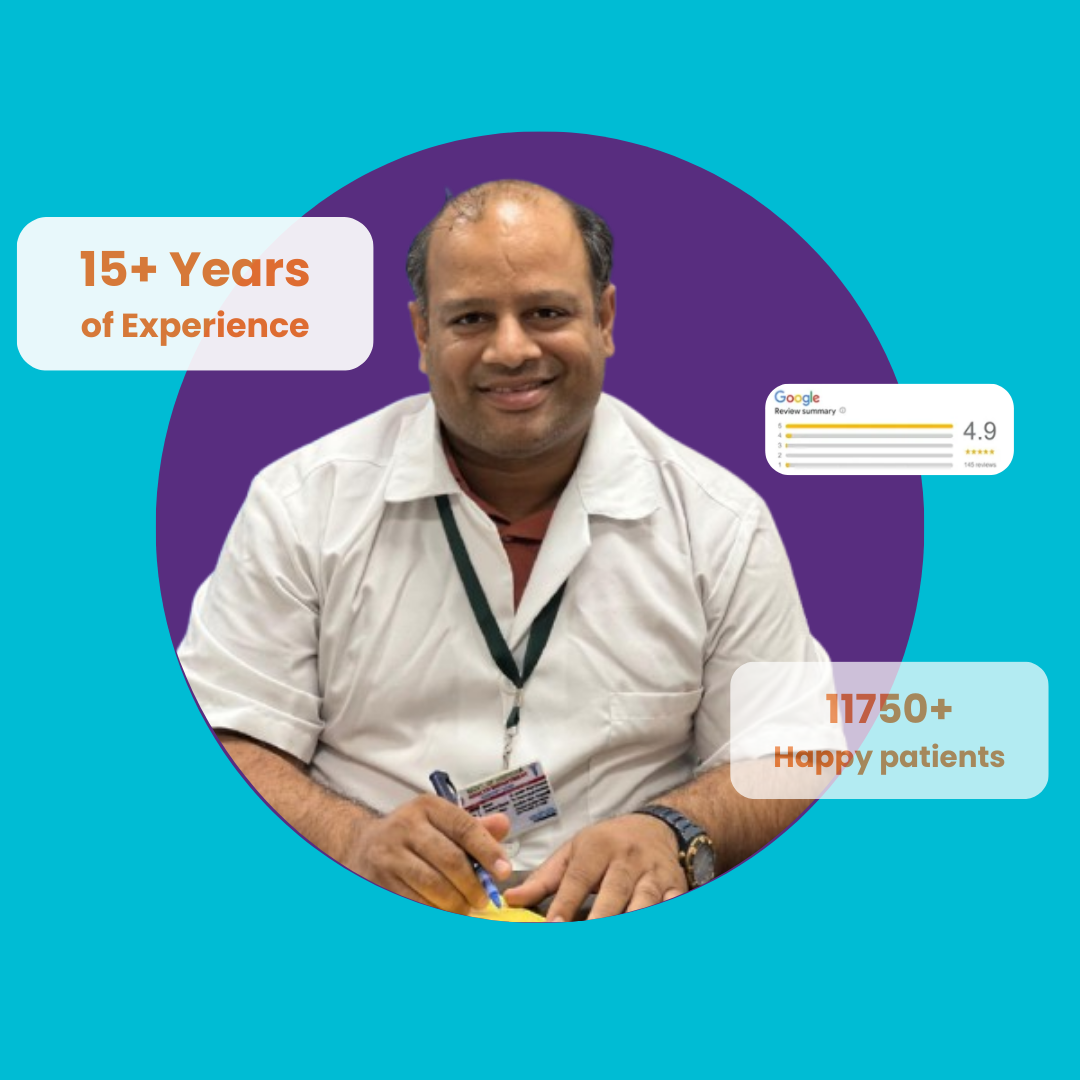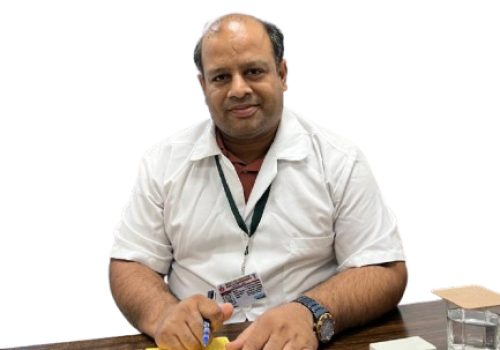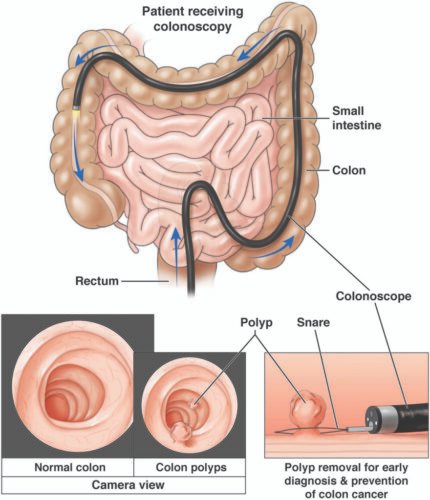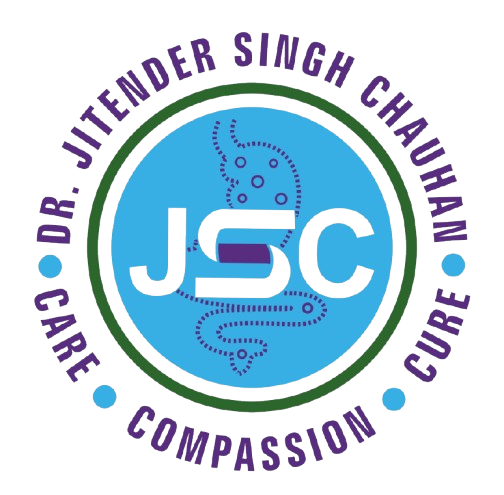Dr. Jitender Singh Chauhan
Best Onco Surgeon in Haryana
This is where Dr. Jitender Singh Chauhan steps in as one of the most trusted Gastro Surgeons and Oncology experts in Haryana, with over 15 years of experience in treating various complex gastrointestinal and oncological conditions. Dr. Jitender Singh Chauhan stands out among other specialists in Haryana due to his extensive training, compassionate care, and dedication to providing the best surgical outcomes for his patients.


Dr. Jitender Singh Chauhan
Dr Jitender Singh chauhan is the leading liver cancer specialist in India. He has treated hundreds of patients with liver cancers. He has more than 15+ years of experience in treating liver cancer.
Management of liver cancer involves proper diagnosis & early treatment. Diagnosis is performed with Triple phase CT scan & AFP level. The treatment involves surgery, chemotherapy, TACE, TARE or RFA.
Trusted Name
11500+ satisfied patients
Rich Experience
Having 15+ years of experience
Safe Surgical Hands
1000+ successful operations performed

Colonoscopy
Colonoscopy is a minimally invasive procedure used to examine the inner lining of the large intestine (colon and rectum) for diagnostic and therapeutic purposes. This procedure plays a critical role in the early detection of colorectal cancer, polyps, inflammation, ulcers, and other gastrointestinal conditions affecting the colon. Using a long, flexible tube called a colonoscope, which has a tiny camera at the tip, doctors can view real-time images of the colon to detect abnormalities. In addition to diagnosis, a colonoscopy allows for the removal of polyps, the treatment of bleeding, and the collection of tissue samples (biopsies) for further analysis.
Why Choose Colonoscopy?
Preventive Tool
Colonoscopy is highly effective for the early detection and prevention of colorectal cancer by identifying and removing polyps before they turn cancerous.
Diagnosis
It helps diagnose the cause of unexplained abdominal pain, chronic diarrhea, rectal bleeding, and changes in bowel habits.
Therapeutic Benefits
Polyps, tumors, or abnormal tissues can often be removed or biopsied during the procedure, reducing the need for more invasive surgeries.
Procedure Overview
During a colonoscopy, Dr. Jitender Singh Chauhan uses a colonoscope, which is gently inserted through the rectum to examine the entire colon. The procedure usually takes 30 to 60 minutes and is performed under light sedation to ensure patient comfort.
Preparation for the Procedure
Before undergoing a colonoscopy, patients are required to follow specific bowel preparation instructions to ensure the colon is clear for accurate examination. This preparation typically includes fasting and consuming a prescribed laxative solution the day before the procedure.
During the Procedure
Once sedated, a colonoscope is inserted into the rectum and advanced through the colon. The camera at the tip transmits images to a monitor, allowing the doctor to identify any abnormalities. If polyps or suspicious tissues are found, they can be removed or biopsied during the procedure.
Post-Procedure Recovery
After the colonoscopy, patients are monitored until the effects of sedation wear off. Mild bloating or discomfort may occur, but most patients can resume normal activities by the next day. Dr. Jitender Singh Chauhan will discuss initial findings immediately after the procedure, with biopsy results typically available within a few days.
Why Is Colonoscopy Recommended?
Indications for Colonoscopy:
- Screening for Colorectal Cancer: Regular colonoscopy screenings are recommended for individuals over 50 or those with a family history of colorectal cancer.
- Rectal Bleeding or Blood in Stool
- Unexplained Abdominal Pain
- Chronic Diarrhea or Constipation
- Significant Weight Loss
- Inflammatory Bowel Disease (IBD) Diagnosis: To assess the extent of Crohn’s disease or ulcerative colitis.
Why Choose Dr. Jitender Singh Chauhan?
Dr. Jitender Singh Chauhan, a highly experienced and skilled GI cancer specialist and surgical oncologist, is based in Ambala Cantt, Haryana, India. Known for his exceptional surgical precision and compassionate patient care, Dr. Chauhan has established himself as a leading expert in gastrointestinal cancer surgeries. His expertise spans across treating complex cases involving liver, stomach, pancreas, and colorectal cancers, positioning him as one of the top oncologists in the region.
Dr. Jitender Singh Chauhan, a highly respected onco surgeon in Haryana, leads a dedicated and expert team at his practice. Working alongside experienced medical oncologists, radiation oncologists, and interventional radiologists, Dr. Jitender Singh Chauhan provides comprehensive care for patients dealing with various cancers.
Dr. Jitender Singh Chauhan, a highly esteemed onco surgeon in Haryana, is renowned for his expertise in managing advanced stages of cancer, including the complex treatment of stage 4 cancers. With a focus on gastrointestinal (GI) cancers, Dr. Chauhan’s practice provides a wide range of cancer care services, including chemotherapy and surgical interventions.
Frequently Asked Questions
No, the procedure is typically not painful as light sedation is administered to ensure comfort throughout the colonoscopy.
Patients can usually resume normal activities within 24 hours, although mild bloating or cramping may be experienced post-procedure.
While complications are rare, potential risks include bleeding, perforation of the colon, or adverse reactions to sedation. However, these risks are minimized under the care of an experienced doctor like Dr. Jitender Singh Chauhan.
For individuals at average risk, colonoscopy screenings are recommended every 10 years starting at age 50. However, those with higher risk factors, such as a family history of colorectal cancer, may need more frequent screenings.

